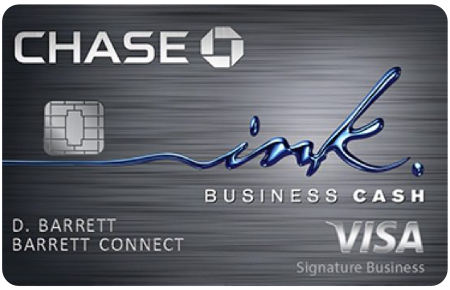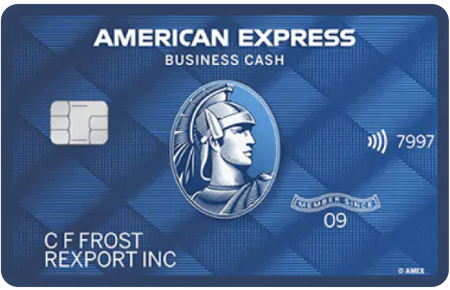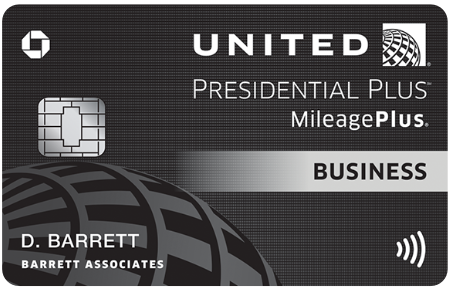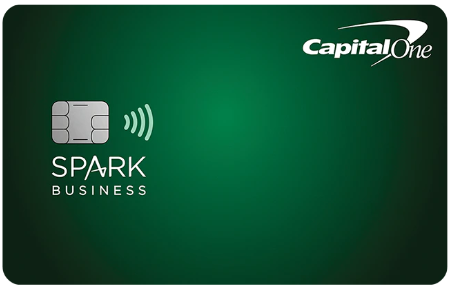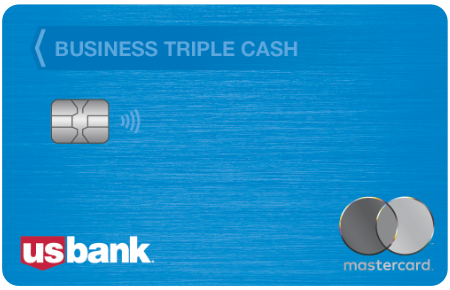Best Small Business Credit Cards of 2026
If you run a startup or a more traditional small business, you almost certainly have overhead expenses. Whether you sell handmade items through an online store or offer financial advice to larger organizations, there will be costs that you need to pay to keep your business up and running.
Our team of experts gathered the ultimate list of credit cards that suit a variety of people, regardless of your credit score and history. If you are ready to find the most beneficial credit card for your situation, keep reading this article to learn everything you need to know.
Top 5 Best Small Business Credit Cards
However, you may not always have the cash on hand to pay for all of the things you need right now. For this reason, small business credit cards offer business owners a way to access credit and make the everyday purchases needed to run their company.
While you could always opt for a personal credit card and use it to make purchases for your business, you may want to keep your personal and business finances separate (most small business owners do). Therefore, acquiring a business credit card could be one of the best and easiest ways to keep these two categories separate and organized.
That said, when it comes to any credit card—personal or business—you should never just pick the first available option.
Instead, you should learn some essential information about credit cards for businesses and how they differ from other types of business credit. Questions you might have include:
- How do business cards differ from personal cards?
- Does your business have its own credit score?
- How can you apply for a business credit card?
- What are some of the best small business credit cards of 2026?
In today’s guide, we will answer all of these questions and more, but first, let’s take a quick look at what the term “small business credit card” actually means:
What Is a Small Business Credit Card?
“Having access to business credit is the lifeline for a business. It enables you to obtain the capital you need to expand, cover day-to-day expenses, purchase inventory, hire additional staff, and allows you to conserve the cash on hand to cover your cost of doing business.” – U.S. Small Business Administration
A small business credit card is a type of card issued specifically to small business owners to help pay for anything needed to run their company. Fortunately, most providers do not put strict limitations on what constitutes a “business expense.” In other words, you can still use a business credit card for any type of purchase, just like you would with a personal credit card.
This begs the question: what’s the difference between a business credit card and a personal credit card?
Business Credit Cards vs. Personal Credit Cards
Since we are most concerned with business credit cards, we will focus on specific ways they distinguish themselves from personal lines of credit. Here are a few features and characteristics that you can expect with a small business credit card:
Higher Credit Limits
If you run a small business, you have business income that can be used to pay your debts each month. Additionally, you likely have higher expenses than someone who does not run their own business—though this is not always the case. Consequently, most banks and credit card companies are willing to extend more credit to small and medium-sized businesses.
For example, let’s say that you go to apply for a personal credit card at your banking institution. Based on your qualifications, the bank offers you a card with a limit of $2,000. If you apply for a business credit card that is linked to a business you own and operate, you could potentially get a limit that is two or three times as much.
Just keep in mind that business credit card limits are typically linked to the income that your business brings in. A small business with a net annual income of $500,000 will qualify for higher credit limits than a small business that brings in $100,000 per year.
Additionally, you may have to pay an annual fee to maintain these high limits. While we will cover several business cards with no annual fee in today’s guide, many providers include an annual fee that is typically around $100.
Benefits & Rewards
If you have a personal credit card or have ever applied for one, you likely know that credit card companies try to bring in new customers with enticing bonus rewards programs. For instance, you might get a travel rewards card that every time you make a purchase accumulates “miles” which can go toward your next vacation. These rewards are often paired with no foreign transaction fees to make international travel even easier.
Some of the most popular consumer credit cards offer cash-back deals on certain types of common purchases like fuel or groceries. Cash-back cards typically offer anywhere between 1-3% of the value of your purchase in cash rewards, with many offering cash-back deals on any type of purchase. When you combine cash-back deals with no annual fee, it can make many personal cards even more enticing.
Alternatively, business credit cards tend to be a bit more limiting with rewards programs. Though it varies from one credit card to another, you will likely get business cards that either do not have rewards programs or only offer deals that specifically benefit business owners. For example, you might get a card with cash-back deals that only apply to eligible purchases at office supply stores.
Fewer Introductory Rates
Many personal credit cards offer 0% APR for the first year (or possibly longer). This makes personal cards more appealing if you need to make large purchases soon and plan to pay them off within the next 12 months.
Unfortunately, introductory rates on business credit cards tend to be less desirable. Your business credit card may only offer an 0% APR period for a few months, or perhaps no introductory period at all.
Spending Reports
With a personal credit card, you usually get a monthly statement in your mailbox showing all of your purchases, as well as the minimum payment due. With a business credit card, you will often get access to more comprehensive reporting. This makes it easier to do itemized deductions on your taxes and keep a close eye on your business expenditures.
More reporting resources also make it easier to track spending across your organization, which is especially useful if you need multiple employee cards.
Credit Reporting
Unbeknownst to many business owners, the vast majority of business credit cards do not report credit card activity to major credit bureaus like Equifax and TransUnion. The biggest benefit of this difference is that you can leave a balance on your business credit card without any effect on your personal credit score.
Business credit card issuers report to business credit bureaus instead, which allows your business—not you—to build its own credit history via your business credit card activity.
However, it is important to note that your personal and business credit scores are not completely distinct.
For example, when you first apply for a business credit card, you will likely have no business credit record. Therefore, the credit card company will rely on your personal credit history when evaluating your application. Additionally, late payments may be reported to both consumer and business credit bureaus, negatively impacting both your personal and business credit scores.
How a Business Credit Card Can Help Build Business Credit
As you can probably surmise thus far, a business credit card is not all that different from a personal one. The same is true of personal and business credit scores. In other words, if you make regular purchases, pay your bills on time, and keep your credit card balances low (ideally below 30% of your credit limit), you can build your business credit over time.
As your business credit score increases, you may be able to request credit line increases, a lower APR, and even apply for small business loans with more favorable terms. In any case, simply using your business credit card and practicing financial responsibility can help you build your business credit.
How to Apply for a Business Credit Card
Fortunately, most business credit card providers are not strict about the kind of information you need to provide. This means that you don’t have to work very hard to “prove” that you own a business.
For example, you do not need an Employer Identification Number (EIN) to get a business credit card or a business checking account, nor do you have to be officially incorporated as a business. Freelancers and other self-employed individuals can also qualify for business credit cards, even if they do not run a traditional business with employees.
However, you will still need to provide some basic information to your bank or a credit card company to get the ball rolling. This information generally includes:
- Personal credit score
- Social Security number or EIN
- Business address (can be your home address if you operate out of your home)
- Annual business income (can be $0 if you are just starting your business)
- Number of employees (can be zero if you are the sole proprietor)
- Number of employee cards needed (if applicable)
Generally, it is easier to get a business credit card through a bank with which you already have a working relationship. For instance, if you have a personal checking account with a specific bank, you may want to contact this bank first to see what they can offer you. It can be easier to get through the application process and qualify for a business credit card if the bank already works with you.
5 Best Small Business Credit Cards of 2026
We’ve talked about bad credit personal loans — but what is bad credit? How low does your score have to be for lenders to reject you due to bad credit? Everyone seems to have a different standard for quality credit scores in their company. What is the official consensus on a score that qualifies as bad?
FICO considers a bad credit score to be anything below 580, but you will have trouble in many locations if it’s anywhere below 600. Research has shown that many people with scores this low are late with their debt payment obligations. Companies don’t want to give money to people who won’t pay them back.
Many situations can lead to a poor credit score. It’s critical to keep them in the back of your mind to ensure you have a decent credit history at all times. Let’s talk about a few of the common factors that can lower your credit score.
Chase Ink Business Cash Credit Card
The Chase Ink Business Cash Credit Card is a great option for a wide range of businesses. Whether you are just starting out or you have been in business for years, the Chase Ink Business Cash Credit Card offers a one-year, 0% APR period, no annual fee, and cash–back deals on eligible purchases. It is also a great card if your business has employees who need to have their own credit cards for work.
- Annual Fee: $0
- Intro APR: 0% APR for the first 12 months, then 14.49% – 23.49% (Variable)
- Recommended Credit Score: 580 – 740
- Rewards: $750 cash back if you spend $7,500 in the first 3 months; 5% cash back in select business categories
- Additional Benefits: Free employee cards
- Best For: Businesses with employees
American Express Blue Business Cash Card
The American Express Blue Business Cash Card has great introductory rates, competitive benefits, and no annual fee. If you think that your initial credit limit may not be enough to fit your needs, you have the ability to spend above your limit as needed without being punished using the Blue Business card.
However, keep in mind that, like most American Express credit cards, you will need relatively good credit to qualify for the American Express Blue Business Cash Card.
- Annual Fee: $0
- Intro APR: 0% APR for the first 12 months, then 15.49% – 23.49% (Variable)
- Recommended Credit Score: 650 – 780
- Rewards: 2% cash back on eligible purchases and 1% cash back on most other eligible net purchases
- Additional Benefits: You can get Expanded Buying Power to spend over your limit if necessary
- Best For: Businesses with existing credit (or business owners with good personal credit)
Chase United Business Card
The Chase United Business Card is designed specifically for business owners who want travel rewards. While there are no introductory rates and the APR is higher than some other business credit cards (not to mention the $99 annual fee), the Chase United Business Card offers ample business travel rewards, particularly if you make your eligible purchases through United Airlines. This is also a great card to accumulate bonus miles if you are able to make substantial purchases within the first 3-6 months of receiving the card.
- Annual Fee: $99
- Intro APR: 18.74%–25.74% (Variable)
- Recommended Credit Score: 580 – 740
- Rewards: Earn up to 150,000 bonus miles if you spend at least $20,000 in the first 6 months
- Additional Benefits: Free checked bag and 2x miles on United Airlines flights
- Best For: Businesses with regular travel expenses
Capital One Spark Miles For Business
The Capital One Spark Miles For Business card provides yet another great way for businesses to accumulate travel rewards. In addition to a possible one-time bonus of 50,000, you can earn 2x bonus miles on every single purchase. You also get a full year with no annual fee, though the standard annual fee of $95 kicks in after 12 months. This makes the Capital One Spark Miles For Business ideal for business owners who need to travel and use their cards on a wide variety of items and services.
- Annual Fee: $0 for the first year, then $95 per year
- Intro APR: 22.49% (Variable)
- Recommended Credit Score: 580 – 740
- Rewards: Earn 2x bonus miles on all purchases and 5x bonus miles on hotels and rental cars
- Additional Benefits: One-time bonus of 50,000 miles if you spend $4,500 within the first 3 months
- Best For: Businesses with regular travel expenses
U.S. Bank Business Triple Cash Rewards World Elite Mastercard
Though the U.S. Bank Business Triple Cash Rewards World Elite Mastercard is one of the lesser-known options on this list, it offers some of the most well-rounded benefits.
Not only can you get a card with no annual fee, but you also get cash back on all purchases, a $100 annual credit toward business software subscriptions, and higher cash–back deals on prepaid hotels and other travel expenses. In short, this is one of the best cards for small businesses of all kinds.
- Annual Fee: $0
- Intro APR: 16.24% to 25.24% (Variable)
- Recommended Credit Score: 580 – 740
- Rewards: Earn 1% cash back on all purchases and 3% cash back on select eligible purchases; 5% cash back on prepaid travel expenses
- Additional Benefits: $100 annual credit toward business software subscriptions
- Best For: Businesses with software subscriptions
The Bottom Line—Build Credit For Your Business
As you can see, credit cards for small businesses can provide ample credit, solid rewards, and—perhaps most importantly—build credit for your business. Having a small business with strong credit can even help you acquire loans or additional credit lines in the future. In doing so, you give your business greater financial freedom for the long term.
If you use your small business card correctly, you can build your business credit score over time and qualify for better deals along the way. Additionally, by applying for one of the best business credit cards of 2026, you’ll take advantage of no fees, lower APRs, and additional benefits for business owners!
Frequently Asked Questions About Business Credit Cards
Yes, you can use your EIN to apply for a credit card. In fact, providing your EIN may grant you better terms, especially if you are applying for a business card. However, most lending companies will still want to see your Social Security number so they can run a personal credit check and a business credit check. Depending on where you apply for a credit card, you might be able to secure a business credit card with your EIN alone (though this is less common).
Yes, companies that issue business credit cards will check your business credit score (if you have one), as well as your personal credit score. Many business owners applying for their first business credit score do not have enough credit history built up for their business. Additionally, credit card companies want to use as many tools as possible to determine whether or not an applicant is fiscally responsible. Therefore, your personal credit score often determines whether or not you qualify for a business card and, if so, what kind of terms you can get.
Business credit does not use the same scale as personal credit. Generally, personal credit ranges between 300 and 850. Alternatively, business credit ranges between 1 and 100. Naturally, the higher the number, the better your credit score. 80 or above is considered a “Good” business credit score, while anything between 50 and 79 is just “Fair.” A score of 80 indicates that your business pays its bills on time. If you want to secure a business credit score of 100 (or close to 100), you will need to pay your bills as much as 30 days ahead of time.
A business can build credit in as little as one year via loans, credit cards, and similar financial vehicles monitored by credit bureaus. That said, most experts agree that your business will need at least 3 years to build a thorough credit history and a credit score that accurately reflects the financial resources and strength of your business.
Yes, 80 is a good business credit score. However, 80 is the minimum score your business can have and still fall within the “Good” range. A score below 80 is considered “Fair,” while a score below 50 is considered “Poor.” Typically, a score of 95 or above is considered “Excellent,” but this can be hard to achieve unless you are willing and able to make bill payments well in advance of their due dates.
There is no average limit on traditional business credit cards because banks and credit providers base the card limit on each individual business. If your business has just opened its doors and does not have any credit history, you will likely get a lower limit. Alternatively, if you have been in business for years and can show evidence of a strong payment history, you can almost certainly get a corporate credit card with a much higher limit.
No, it is not illegal to use a personal credit card for business. Many small business owners use their personal lines of credit to make everyday credit card business purchases at office supply stores or similar venues without any problems. However, a business card can offer specific perks to small businesses on many types of eligible purchases and make it easier to keep your personal and business finances separate. As a result, it is typically a good idea to have a personal credit card for your non-business expenses and a business card for your business expenses.
What Type Of Business Credit Card Suits Your Situation Best?
Compare the best credit cards in the table above.
